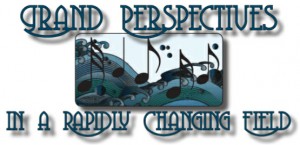Happy holidays to all!
From our family to yours: We hope you have a very happy and healthy holiday season filled with relaxation and quality time with loved ones.

 Before any rumors start, NO, I am not pregnant! Rather, this topic choice was inspired by an article on Forbes Woman today, entitled Pregnant? You’re Fired!: Pregnancy Not a Legitimate Obstacle to Success.
Before any rumors start, NO, I am not pregnant! Rather, this topic choice was inspired by an article on Forbes Woman today, entitled Pregnant? You’re Fired!: Pregnancy Not a Legitimate Obstacle to Success.
Music therapy is a female-dominated profession. In the 2011 Statistical Profile of the AMTA Membership, 90% of the respondents were female (1,492 females, 169 males). Consequentially, family planning and pregnancy will be issues that the majority of music therapists will face. However, this was an issue that was never discussed during my music therapy training. Especially as an MTBO (that’s Music Therapy Business Owner), how do we navigate family life while maintaining our professional life?
I have seen colleagues adopt a few different approaches. I know some have subcontracted for maternity leave. On the one hand, services continue for your clients, but some populations adjust to a change in service provider better than others. Clients with autism may have a particularly hard time with this transition. I worked with a student who started violently acting out a month before his classroom teacher went on maternity leave, because he was so anxious about the change.
Other MTBOs have set their clinical schedules around the birth of their child. This seems easier to do if your baby arrives towards the end of the school year/beginning of the summer, but what about a January baby? Especially if you contract within schools, it may be hard to negotiate a leave in the middle of the year.
MTBOs – I would like your input. What options have worked for you? How do you maintain a balance between family life and your business? (Dads, we want to hear your side, as well!)
 About a year ago, I signed on for one of the biggest learning experiences of my professional life, thus far: I agreed to be the Program Chair for the 2012 Conference for the Great Lakes Region of the American Music Therapy Association. The conference was held this weekend in Grand Rapids, MI (my hometown) with the theme of Grand Perspectives in a Rapidly Changing Field.
About a year ago, I signed on for one of the biggest learning experiences of my professional life, thus far: I agreed to be the Program Chair for the 2012 Conference for the Great Lakes Region of the American Music Therapy Association. The conference was held this weekend in Grand Rapids, MI (my hometown) with the theme of Grand Perspectives in a Rapidly Changing Field.
My role as the Program Chair was to plan and coordinate all of the concurrent sessions, the CMTE/Institute offerings, the opening & plenary sessions, and to produce the actual, paper program provided to conference registrants. I’ve lost track of the number of hours I put into this volunteer position, but I know the lessons learned about event planning, committee collaboration, coordinating many people from a distance, and seeing all the amazing things music therapists are doing throughout the Great Lakes Region have greatly strengthened me as a professional music therapist. I was priviledge to work alongside some AMAZING Conference Co-Chairs and other planning committee chairs and, though I haven’t relaxed much the past few months, I am so grateful for this experience.
Additionally, I was part of the program, as I completed my very first professional conference presentation yesterday. Two colleagues from Heartwood School joined me to present on how we collaborate and integrate the M.O.V.E. curriculum throughout our school and, particularly, within music therapy. Our presentation was very well received and we have already been asked about presenting at some other center-based schools here in Michigan.
I have quite the mix of emotions this morning. On the one hand, I am relieved to be done with my duties and to have more time to focus on building and improving CODA MTS, as well as to devote to my personal life. However, at the same time, I am experiencing a loss and I am sad that this experience has ended. Regardless, I can’t wait to see all my music therapy colleagues again for our national conference in Chicago in October and/or the 2013 GLR conference in Columbus, OH!
Related Posts:
Keeping My Credentials
There’s So Much to be Thankful For

One of our local news channels, Fox 47 News, is running a contest: “Tell us how music impacts your life…and WIN!” The prize? Tickets to see Broadway musical ‘Memphis!’, dinner for two, a limo ride, and some hang out time with the cast. To be honest, when I submitted my entry, my only thought was that if it opened even one pair of eyes to music therapy, it was a success. However, between preparing for GLR 2012, wedding planning, and a plethora of other projects we have in the works here at CODA MTS, I have been more than slightly stressed out and could definitely use a night out with my darling fiancee! Added bonus: it’s the week of my 30th birthday!
Here’s how you can help:
1) Follow this link.
2) Become a registered user, if you are not already.
3) Find #30 and select “Save Vote” (#30 + 30th birthday = fortunate coincidence?)
4) Share this post with your friends.
5) Sleep
6) Repeat steps 1-5. In other words, you can vote once per day, so please come again tomorrow! 🙂
I greatly appreciate your help. Fingers crossed, birthday wish made!
To borrow from the legendary David Bowie, we are going through some ch-ch-ch-ch-changes here at CODA Music Therapy Services!
So far, the most notable of these changes involved unveiling the NEW LOOK of www.codamts.com this week! A big thanks to Kat Fulton and her amazing Online Zennn course for providing guidance throughout the re-design process. In addition to the new look, we have moved CODA Quips over to the site, re-located from its original home on Blogger. We are still in the process of adding additional content, but what do you think of our new look?
Another change in the works: we are preparing to send out our very first edition of CODA Connections, a newsletter which will feature information about events and programs here at CODA MTS as well as general information and news about music therapy and adapted music education. Sing Play Grow will also soon have its own newsletter, featuring articles and activities for early childhood music. Don’t miss out on the inaugural editions – sign up here today!
In my previous post – Parents as Advocates– I mentioned that, within a growing number of states, there is an advocacy push for state licensure of music therapy. There have been a number of media stories released about these efforts and I thought it would be worthwhile to compile a reference list; I have also included links to the actual Bills when available. This is a working list and will be updated as articles appear. Please leave a comment if you come across one I have missed!
Colorado
Music Therapy: A Field That’s Climbing the Scales (The Stony Brook Independent; December 14, 2011)
Music Therapy Practice Act
They’ve Got Rhythm; They Want Licensing (Aurora Sentinel; January 18,2012)
Georgia
Government Relations Latest Developments (Music Therapy Association of Georgia)
Music Therapist Licensure Bill Passes Senate (The Weekly; March 5, 2012)
Music Therapist Licensure Bill Passes Senate (SenatePress.net; March 5, 2012)
Minnesota
State Licensure Recognition (Music Therapy Association of Minnesota, Feb 2012)
Nevada
Music Therapist Licensure (Nevada Dept. of Health & Human Services)
Drumming Up Music Therapy NV Licensure Bill SB-190 (YouTube; March 12, 2011)
Senate Bill No. 190 – Senator Denis (2011)
Celebrating Music Therapy Licensures in 2011 (AMTA on YouTube; Nov 2011)
New York
Music Therapy: A Field That’s Climbing the Scales (The Stony Brook Independent; December 14, 2011)
North Carolina
Music Therapy Moving Toward Licensure in State (Winston-Salem Journal; July 18, 2011)
Spotlight Falls on Music Therapists (Raleigh News and Observer; January 18, 2012)
North Dakota
Music Therapy Helps Facilitate the Field’s First Licensure Law (UND, July 2011)
Celebrating Music Therapy Licensures in 2011 (AMTA on YouTube; Nov 2011)
Music Therapy: A Field That’s Climbing the Scales (The Stony Brook Independent; December 14, 2011)
Oklahoma
State Licenses for Music Therapists Would Benefit People Who Have Disabilities (Tulsa World; April 11, 2011)
South Carolina
Healing Sounds: Lyman Lawmaker’s Bill Would Recognize Music Therapists (GoUpstate.com; January 17, 2011)
Bill 3093: Music Therapy Practice Act (2011-2012)
It’s January, which means it is Social Media Advocacy Month in the music therapy cyber world. Last year I wrote about advocating in our everyday lives. As I thought about what advocacy aspect to address this year, I found myself focusing on a question I often receive: How do I get music therapy services for my child with special needs?
When you think about it, the answer lies in advocacy.
Here are ways in which parents advocating services for their child can also advocate for the field of music therapy.
Request an Assessment
The U.S. Department of Education recognizes music therapy as a related service under the Individuals with Disabilities Education Act (IDEA). However, there are still many educators and administrators who are unaware of this specification. By requesting an assessment – the first step to receiving music therapy services – parents bring awareness to the field, create opportunities to educate the educators, and just may elicit overall program changes. I received my first school-wide contract in part because one parent requested music therapy services for her child.
Invite Music Therapists to Speak
Most music therapists jump at the opportunity to speak about our field. Parent support or advocacy groups are a great place to share information and gather additional advocates. I am a firm believer in the policy of strength in numbers!
Contact Your Legislators
Currently, there are a number of states working for legislature establishing a state music therapy license. This not only ensures clients are receiving the highest level of care from properly trained professionals, but it also strengthens the case for healthcare coverage of music therapy services. Parent testimonials supporting the role of music therapy provides legislators with a tangible, human reason to join our advocacy efforts.
What other ideas do you have? Are you a parent of a child with special needs; how have you been successful in advocating for services? Let us know, leave a comment below!
How did this year go so quickly? Reading over my post from this time last year –
Not much changed with our school contracts, but, unfortunately, still little progress in expanding our program within our area hospitals. However, I truly believe all the publicity surrounding the progress Representative Gabrielle Giffords made through music therapy will help with program proposals throughout a variety of populations and facilities. Afterall, even NPR agrees it was a good year for music therapy (written in purple on the upper left-hand side)!
What’s coming up for us in 2012, you ask? Well, that is TO BE CONTINUED, but in the meantime, enjoy this adorable performance by Zooey Deschanel and Joseph Gordon-Levitt!
Last fall, inspired by a Michigan Music Therapists workshop presentation from music therapists Angie Snell and Laurel Rosen-Weatherford, I taught my adolescent and young adult special education students signs to accompany Josh Groban‘s Thankful (on the Noel album). The students performed the piece at our annual holiday program in December and left very few dry eyes among the staff and parents in attendance. For confidentiality reasons, I am not able to post the video of their performance, but I am able to share this video I recorded of myself during class; their classroom teachers used this video to help the students practice outside of our weekly session.
I wish you all a safe and Happy Thanksgiving; you are all among the many blessings for which I am thankful.
 |
| Congresswoman Gabby Giffords received a standing ovation at her first appearance in the House of Representatives since her attempted assassination (Aug 1, 2011). |
There is already quite a buzz throughout my social media streams regarding last night’s Gabby Giffords special on ABC News. I’d like to share my reflections on last night’s special and why this news is so important for the music therapy discipline.
As most of you are aware, Gabrielle Giffords, a Congresswoman from Arizona, was shot in the head during an assassination attempt last January. The bullet went through the left hemisphere of her brain, which is the side that controls our language processes and the motor functions for the right side of the body. Gabby Giffords went through extensive rehabilitative treatment at TIRR Memorial Hermann in Houston, TX. As part of her treatment, she received and responded well to music therapy. Due to her stature, her treatment has been followed closely by the media, including a feature by CNN’s Dr. Sanjay Gupta, who spent time experiencing the various treatment disciplines. Of his interactions with TIRR music therapist, Maegan Morrow, he noted, “I realized through music, she was working on developing my attention, memory and overall executive function.” Yes! Exactly!
Having already had such wonderful media attention for Giffords’ music therapy treatment, I was anxious to see what information the ABC News special would provide. I am incredibly thankful to Gabby Giffords and her husband, Mark Kelly, for allowing ABC News to air their home video footage of her treatment. They not only provided insight into the rehabilitation necessary following a traumatic brain injury (TBI), but they also showed the human element of the story, as you can see her frustrations with not being able to say what she knows and also her joy and determination for triumph. It is also easy to see the incredible love and connection between Giffords & Kelly.
I was a bit disappointed that, during the 20/20 special, there was not a more in-depth explanation of music therapy and its use for treatment of TBIs. During the special, they aired footage of music therapist, Maegan Morrow, working with Giffords, but they referred to her as a “therapist with the guitar” rather than explaining her credentials. I was happy to discover that the follow-up Nightline did provide more information about the science of music therapy, including commentary by legendary neurologist Dr. Oliver Sacks. That footage can be seen in the clip Giffords Rebuilds Speech with Song. I love Maegan Morrow’s explanation of how music accesses multiple areas of the brain and music can be used like a highway “exit” to go around the blockage and get to where you need to go. Another clip, including some unaired footage, can be seen online at Gabby Giffords: Finding Words Through Song.
One noteworthy feature to point out about many of these clips is that you can see Giffords struggling for one, two-word responses, yet she is able to sing entire phrases. This is a common occurence for individuals with aphasia; the musical context finds the pathways that the words alone can not. Music can be used to teach the brain to use those alternate pathways to rebuild communication.
Gabby Giffords was only one of the victims of a horrible tragedy. Though we would all rather this had not happened, I am pleased that the media is using this opportunity to focus and educate regarding TBI and the extensive and ongoing rehabilitation needed to survive and overcome these injuries. I wish Gabby Giffords and many others struggling with a TBI continued success in their therapies and recovery. I am also THRILLED to be a music therapist, using music to help others heal and develop each and every day.
Did you catch the special? What were your thoughts?